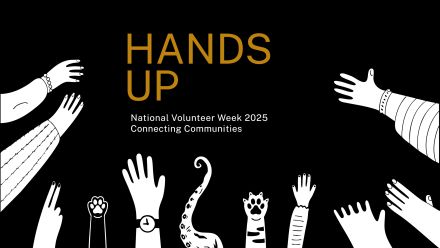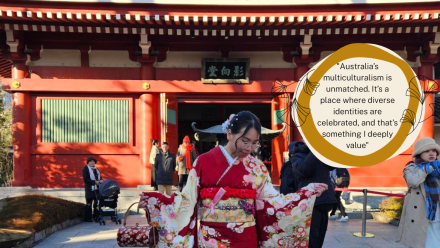Dr Paul Paterson
What attracted you to ANU?
The initial attraction of ANU was its high quality Master of Economics by coursework, with exceptional lecturers including John Niland (labour economics), Stephen Turnovsky (macroeconomics), Bob Gregory (course convenor) and Fred Gruen– an intense and highly stimulating year in which we covered much ground and learned a lot in a short time from great teachers. There were around 20 coursework students so we all got to know each other well, each with diverse backgrounds and widely different motivations for pursuing their post-graduate studies.
This led to doctoral research, first under the supervision of the venerable Trevor Swan, and then with the extremely insightful, patient and kind Bob Gregory who guided and coaxed me over the line.
Tell us about your experience of learning & living at ANU?
My involvement in campus social life included living on campus, the wonders of the old Staff Centre then located in Old Canberra House, and Sunday night movies at University House where you could relax in armchairs in front of an open fire while viewing the film.
This was an extremely enjoyable and stimulating time for my wife Wendy and myself, who was also studying at the ANU. My latest professional role takes me to Canberra frequently and the memories of those golden days flood back, triggered in particular by staying on campus at University House, a real retreat from the rush and bustle of the world in general.
How did ANU shape you?
My time at ANU, as both a Masters and PhD student, introduced me to some wonderful academics who lived the scientific approach ideal – what you reasonably think is the right model or explanation (hypotheses formulation) and whether rigorous investigation of the best evidence that can be marshalled confirms or denies this (hypothesis testing). I experienced people being creative is assembling relevant information, not being daunted by data limitations or entrenched ideas, and in particular people who had a passion for their work as economists and a yearning to keep on learning.
These formative role models not only demonstrated the scientific research approach, but also exhibited persistence and resilience, which I believe to be critically important in professional work and life in general. As newly-weds, campus life was a whole new adventure for us, different and exciting days with the feeling that, even if we were not at the centre of the world in the converted sheep paddocks of Canberra, we were at the centre of Australian politics and academic excellence. From this grounding my respect for, and love of, ANU extends to this day.
It is now thrilling to walk past the previous ANU Computer Centre carrying my super-slim laptop and remembering how I spent countless sleepless nights crunching my PhD statistics on the monolithic, heat-sensitive mainframe computer that took seeming hours overnight to do the simplest econometric procedures. Cutting edge technology at the time!
Tell us about your career?
Unlike many people who have studied economics, I have worked as a professional economist for my whole career, in the public and private sectors, within Australia and overseas. Subsequent to obtaining my Bachelor of Agricultural Economics degree in Armidale NSW I worked at the Commonwealth Bureau of Agricultural Economics in Canberra, then at the Bureau of Labour Market Research, both providing a very strong grounding in applied microeconomics.
I then took a policy analyst position with the OECD in Paris, moving there with my young family for two wonderful years that changed all our lives forever. Through a contact established at the OECD, I was offered the role of Visiting Economist at the Commonwealth Treasury back in Canberra where I spent a year before moving to Sydney as the Chief Economist at the Overseas Telecommunications Corporation (OTC) — my introduction to what now has been over 20 years in telecommunications and media work.
I subsequently spent time in the NSW Premier’s Department in the exciting Greiner years, later moving to Telstra to head the regulatory team there, and more recently spent 10 years in telecommunications and media economic consulting for Australian and international firms - including my own business. This was a special experience in my career, including lots of hard work when demand was there and lots of bush-walking when things were quiet. This was capped off by an enriching year as one of the three Tribunal Members at the NSW Independent Pricing and Regulatory Tribunal (IPART), chaired extremely effectively by an old colleague and fellow ANU alumnus, Dr Peter Boxall.
I am now the Chief Economist in the Commonwealth Department of Communications, and the founding head of the independent Bureau of Communications Research, established in September 2014. This is a really exciting proposition for me, one with great potential to contribute to good public policy in this area — a particular passion of mine. There is a lovely ‘full circle’ element here. Although almost 45 years ago now, when I first started at the Bureau of Agricultural Economics as a fledgling ‘professional’ in the early 1970s, I remember with crystal clarity being in the lift with, who was to me, an old, grey and somewhat life-worn man who created absolute awe and wonder with us cadets, no less than the DIRECTOR of the Bureau! How strange it is then, that towards the other end of my career, uncertain and inarticulate me would be the head of a Commonwealth research bureau! Not creating the same awe I’m sure, and hopefully exhibiting a more approachable demeanour, but the leader none-the-less. Wonderful things do come to pass from getting a strong foundational education, responding to opportunities as they present themselves, giving it one’s best shot, and simply staying the way.
How do you stay in touch with ANU?
I am an active member of the ANU Alumni community and have attended a number of functions. These include an impressive dinner in Parliament House in the past few years. I am also honoured to have been selected for the College of Business and Economics Hall of Fame and listed as a Distinguished Alumni.
A highlight for me a few years ago was giving the keynote address to graduands at a post-graduate ceremony in the Great Hall in University House and dinner afterwards at Boffins restaurant with the professors – Boffins being an expensive and infrequent luxury when Wendy and I were struggling students!
Advice?
Use your professional qualifications to the best of your ability if this is what interests and energises you. Keep moving around, don’t get stuck in one place. Spend some time in both the public and private sectors, and working overseas, they all broaden perspectives. Don’t be too cautious, life seems to reward stepping out and it can be a great adventure. And although I have not been very good at this myself earlier in my life (hopefully better now), keep work and wider life in balance – as the then head of GE Jack Walsh is famously quoted as saying, few people on their deathbed wish they had spent more time in the office.


